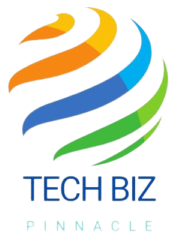AI connectivity refers to the seamless integration of AI technologies into existing business systems to enhance operations. This integration can significantly streamline workflows, eliminate inefficiencies, and pave the way for innovation. In this article, we go into the intricacies of AI enablement and its profound impact on business workflows.
Understanding AI Connectivity and Its Role in Workflow Optimization
AI enablement involves creating an interconnected ecosystem where AI systems communicate effectively with each other and with human users. This synergy is essential for optimizing complex workflows that involve multiple stages and decision points. It’s important for businesses to learn how to use AI connectivity to its full potential. Through systems like BA Insight, companies can share data and insights and make sure that decisions are informed by the most up-to-date and comprehensive information available.
In the context of workflow optimization, AI technologies can analyze patterns and predict outcomes, enabling businesses to streamline their processes accordingly. This predictive capability is invaluable for identifying bottlenecks and anticipating future challenges, allowing organizations to proactively adjust workflows and allocate resources more efficiently. Moreover, AI can provide recommendations for improvements, acting as a virtual consultant for continuous process enhancement.
The Power of AI in Automating Repetitive Tasks
Alt text: Businesswoman wearing glasses and learning how to use AI connectivity on a computer
AI excels at handling tasks that are repetitive and time-consuming, which are often the prime candidates for automation. By taking charge of these duties, AI frees human employees to focus on more strategic, creative, and complex tasks—the kind that require a human touch. This shift not only boosts productivity but also enhances job satisfaction, as workers can engage in more meaningful aspects of their roles.
Automation powered by AI doesn’t just perform repetitive tasks; it often completes them with greater accuracy and speed than a human could. For example, AI-driven software can rapidly process large volumes of data entry, reducing the likelihood of human error. As these processes become more reliable, the overall quality of work improves, leading to better outcomes for the organization and its clients.
Integrating AI Tools for Improved Communication and Collaboration
Communication and collaboration are fundamental in any business operation, and AI can greatly improve these aspects. AI tools like chatbots can provide instant responses to queries, facilitating real-time communication with customers and employees alike. Team collaboration can also be enhanced through AI systems that process and organize information, making it accessible to all team members when needed.
AI-driven communication platforms can analyze the context of conversations and provide relevant information or suggestions, enhancing the productivity of team discussions. Similarly, virtual assistants powered by AI can schedule meetings, send reminders, and assist with task management, streamlining the coordination of collaborative efforts among team members.
For remote teams, seamless collaboration across different time zones and locations is the best way to guarantee effective teamwork. By leveraging AI, teams can work on documents simultaneously, track changes in real time, and maintain a synchronised workflow, regardless of their physical locations.
Future-Proofing Your Business With AI-Driven Workflow Enhancements
Alt text: Business professionals receiving training on how to use AI connectivity in a busy office with multiple desks
As we stand on the cusp of a new era in business technology, it’s clear that AI-driven enhancements are a fundamental shift in how workflows are managed. Investing in AI now can future-proof businesses which guarantees they remain competitive and innovative in a world where digital transformation is ubiquitous. This process begins by evaluating current workflows and identifying areas where AI can make the most substantial impact.
With an eye on the future, organisations should also consider the scalability of AI solutions. As businesses grow, their workflows will become more complex, necessitating AI systems that can adapt and scale accordingly. Additionally, the continuing evolution of AI technology means that businesses must remain agile, ready to adopt new advancements that can further enhance workflow efficiency.
Altogether, AI upgrades modern business efficiency by automating tasks, improving communication, and advancing strategic decision-making. Overall, by embracing AI-driven workflow enhancements, businesses not only streamline their operations today but also lay the groundwork for sustained success in the future.

